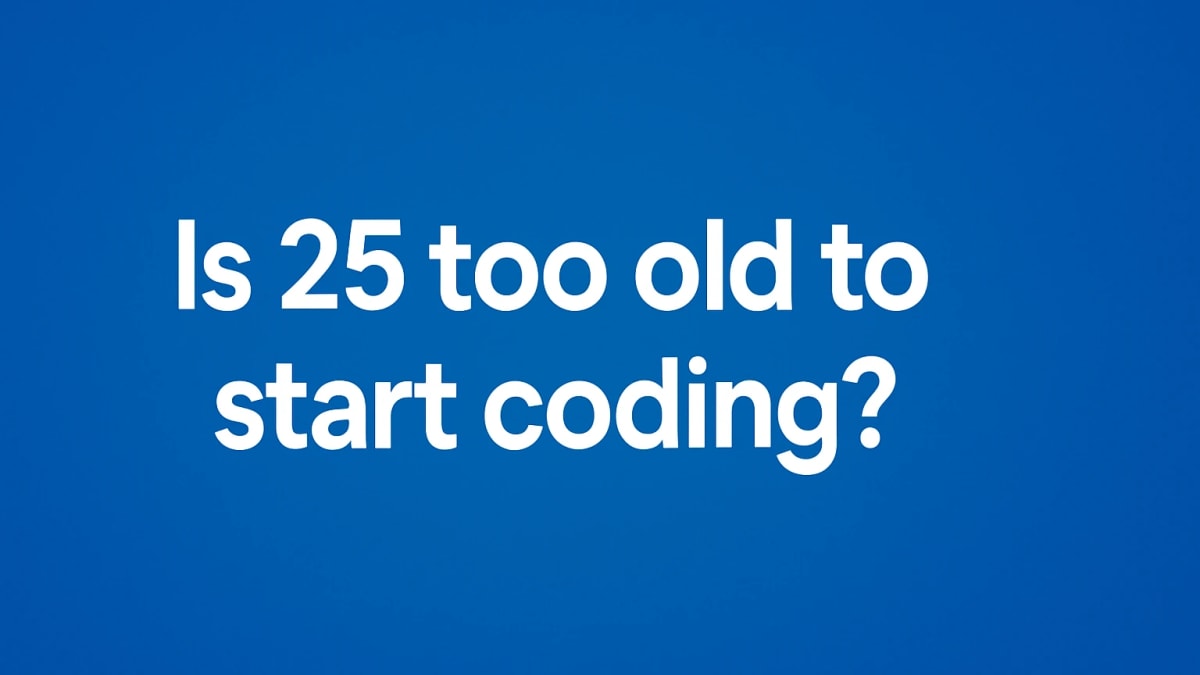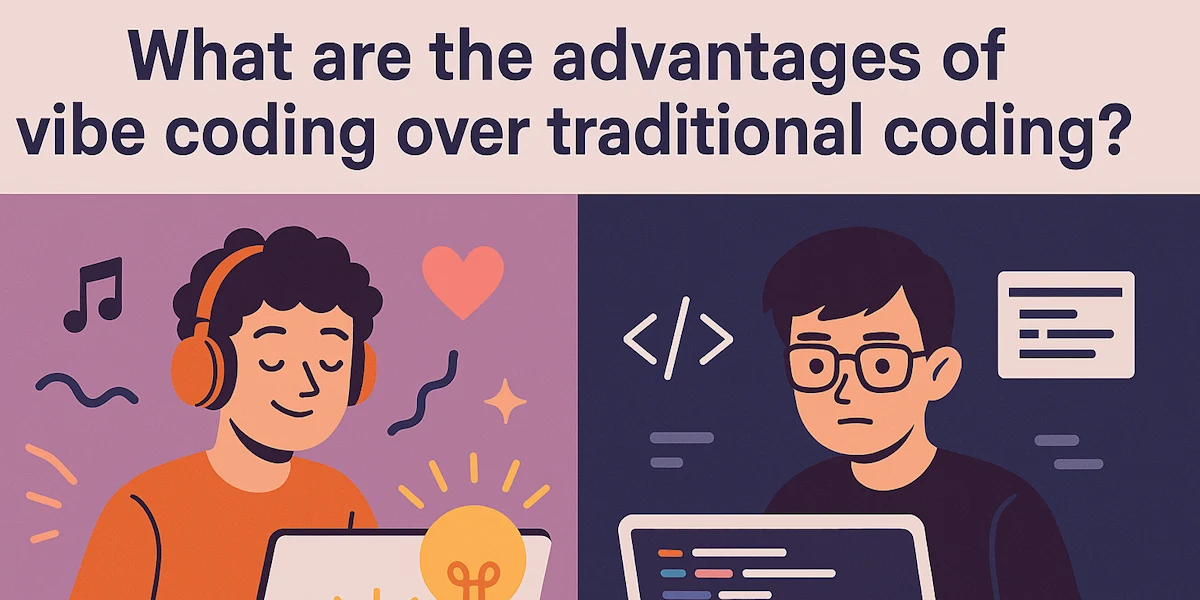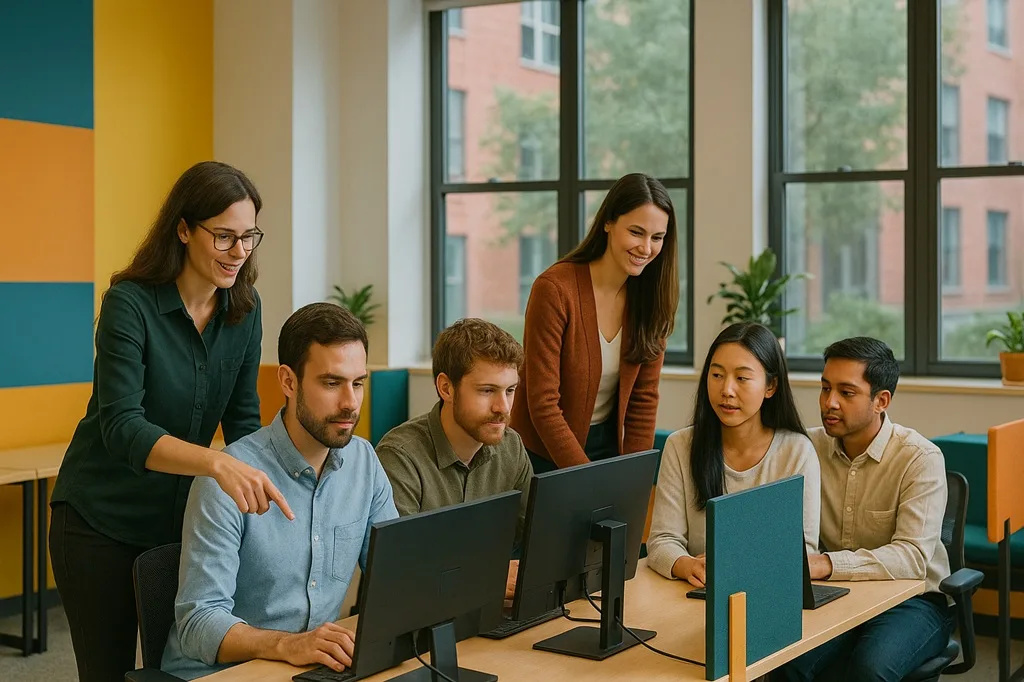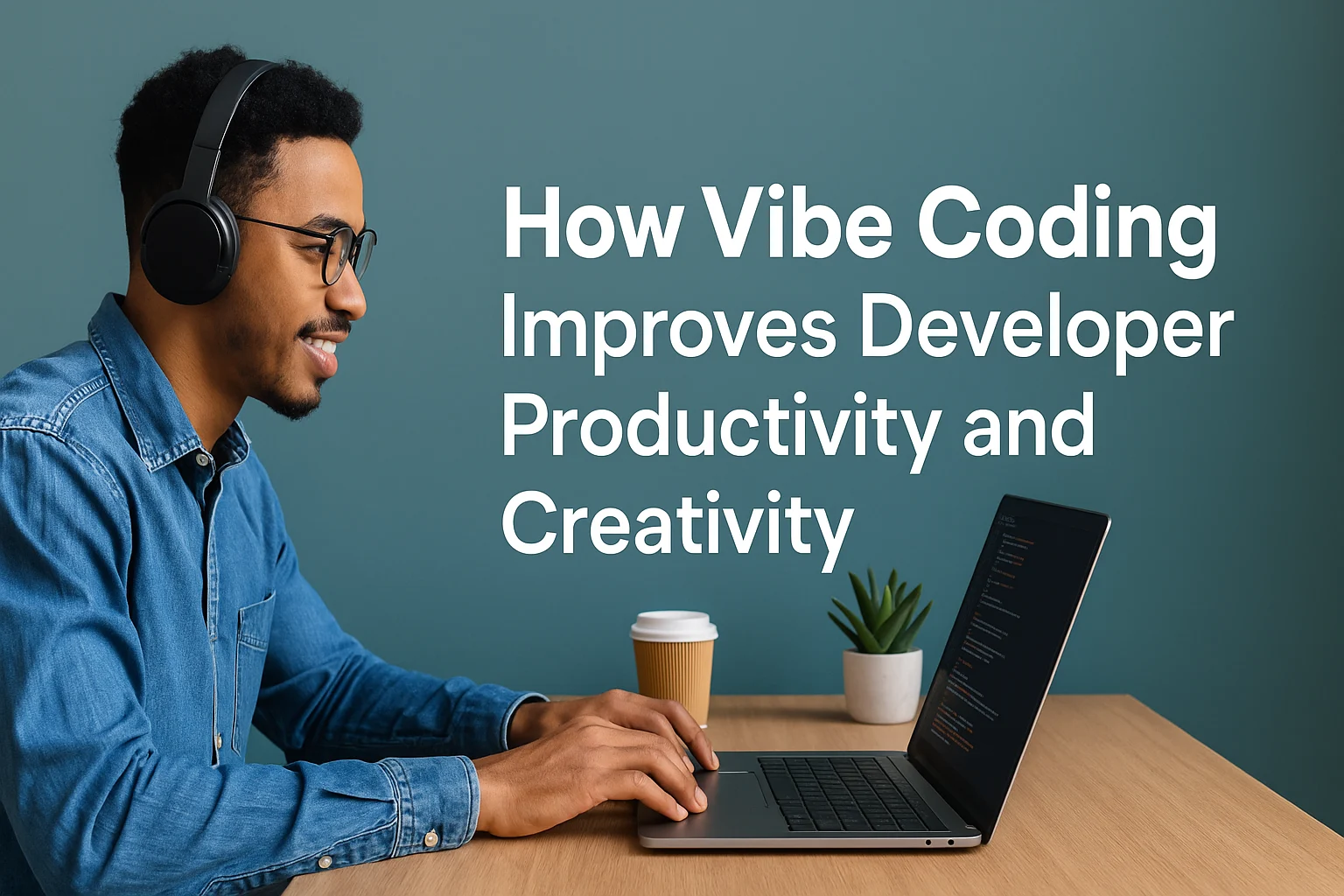Is 25 Too Old to Start Coding?

Introduction
Let’s start with the burning question: Is 25 too old to start coding?
Short answer? Absolutely not.
If you’ve ever felt that you missed the boat because you didn’t start coding at 12 like some prodigy in a garage — you’re not alone. The good news? You’re right on time.
Whether you're exploring a new career, switching lanes, or just curious, learning to code at 25 is not just possible — it could be one of the smartest moves you ever make.
Myths About Age and Coding
Tech is for Teenagers
We've all seen stories of teenage hackers or 18-year-olds landing jobs at Google. That’s great — but it’s not the only path. Tech isn't just for the under-20 crowd. It's for anyone who wants in.
You Must Start Young to Be Successful
Many believe that starting at 8 or 10 is the only way to make it in tech. False. People start in their 30s, 40s, even 50s — and thrive.
Older Learners Can’t Keep Up
Actually, studies show that adults learn just as well — and often better — because they bring context, discipline, and clarity to what they’re doing.
Realities of Learning to Code at 25
Your Brain Isn’t Too Old to Learn
Your brain at 25 is still a sponge. Neuroplasticity — the brain’s ability to form new connections — is very much alive. You just need to focus and practice.
You Bring Unique Strengths
At 25, you probably have work ethic, patience, and life experience that younger learners may not. Those are powerful advantages.
Motivation Beats Age
If you’re hungry to learn, you’ll surpass others who aren’t consistent — regardless of age.
Success Stories of People Who Started Coding After 25
From Bartenders to Backend Engineers
There are thousands of people who went from working non-tech jobs — bars, construction, retail — to coding full-time.
Career Switchers Who Made It Big
Markus Persson, creator of Minecraft, didn’t become famous until later in life. Many devs switch from fields like teaching, marketing, or sales and build thriving careers.
Famous Developers Who Started Late
Chris Wanstrath (co-founder of GitHub) didn’t even study CS. Age didn't define his success — grit and curiosity did.
The Advantages of Starting at 25
More Maturity and Focus
You’re more disciplined now than at 17. That helps you avoid distractions and stick to goals.
Life Experience Translates to Better Problem-Solving
You’ve faced real-world problems. You know how to troubleshoot, adapt, and think critically — all key traits for a programmer.
Stronger Communication and Teamwork Skills
Coding is not just about writing code. It’s about working with others — something you probably already do well.
Common Challenges (And How to Beat Them)
Balancing Learning With Work or Family
Solution? Set a simple schedule — even 1 hour a day adds up.
Imposter Syndrome
Everyone feels it — even senior devs. The trick? Keep going. Confidence grows with time.
Choosing the Right Path
Start broad, then narrow. Explore web development, data science, automation, or mobile apps — and see what excites you.
How to Get Started With Coding at 25
Pick a Programming Language (and Stick With It)
Start with Python (great for beginners), JavaScript (web), or Java (backend). Don’t jump around too soon.
Use Beginner-Friendly Resources
Try:
-
FreeCodeCamp
-
Coursera
-
YouTube channels like The Net Ninja, Tech With Tim
Set Realistic Goals and Timelines
Don't expect to become a developer in 30 days. Aim for consistent weekly progress.
Best Learning Paths for Beginners
Bootcamps
Fast, immersive, but can be pricey. Great if you want structure and career help.
Online Communities like C# Corner
Online Courses
Udemy, edX, and similar platforms offer affordable, flexible learning.
Self-Taught Journey
Many successful devs are self-taught — just build projects, stay curious, and keep going.
Building a Portfolio That Gets Noticed
Start With Mini Projects
Build a to-do app, calculator, or weather dashboard. It shows you know your stuff.
Contribute to Open-Source
Find beginner-friendly issues on GitHub. It builds credibility fast.
Show Your Code on GitHub
Treat GitHub like your resume. Clean, organized code — even small projects — matter.
How to Break Into Tech
Networking and Meetups
Go to tech events, join Discord servers or forums. People hire people they connect with.
Freelancing and Internships
Offer to build a site for someone local. Or apply to small gigs. Experience matters.
Certifications and LinkedIn Optimization
Certs like Google or AWS can help. Keep your LinkedIn updated and full of your progress.
Comparing Yourself to Others: Stop That!
Everyone Has a Different Journey
Someone might learn fast — you might go slower. That’s okay.
Focus on Progress, Not Perfection
Done is better than perfect. Build. Learn. Repeat.
The Importance of Community Support
Join Online Communities
Reddit (r/learnprogramming), Dev.to, Hashnode — all great places to ask and learn.
Find a Coding Buddy or Mentor
Accountability helps you stay on track. And mentors can guide you past tough spots.
Financial Considerations
Coding Doesn’t Require a College Degree
Most dev jobs care more about skills and projects than diplomas.
Free and Affordable Resources
Use:
- The Odin Project
- freeCodeCamp
- Khan Academy
- YouTube
Long-Term Career Growth After Starting at 25
Junior Roles to Senior Devs in 3-5 Years
With consistency, you can go from newbie to well-paid professional in under 5 years.
Tech Leadership and Entrepreneurship Opportunities
Many coders go on to become tech leads, architects, or build their own startups.
Conclusion
So, is 25 too old to start coding? Heck no.
You're not late — you're just getting started. Coding is one of the most inclusive, flexible, and rewarding careers out there. And it doesn’t care how old you are.
What matters is curiosity, commitment, and consistency. Start today — and your future self will thank you.
FAQs
1. Can I become a software developer if I start at 25?
Yes! Many people start at 25 (or older) and go on to land jobs in top companies.
2. How long will it take to get a job?
With 1–2 hours a day, most people are job-ready in 9 to 12 months, depending on their learning pace.
3. Do companies hire older junior developers?
Absolutely. Companies care about skills, not age. A good portfolio speaks louder than your birth year.
4. What if I don’t have a computer science degree?
That’s fine. Many developers are self-taught or come from bootcamps. A degree helps but isn’t required.
5. Is coding a good career choice in 2025 and beyond?
Yes! Tech is growing fast, and the demand for developers — especially in AI, web, and cloud — is exploding.

Deepak
Vibe Coder specializing in AI-powered development and software architecture.


